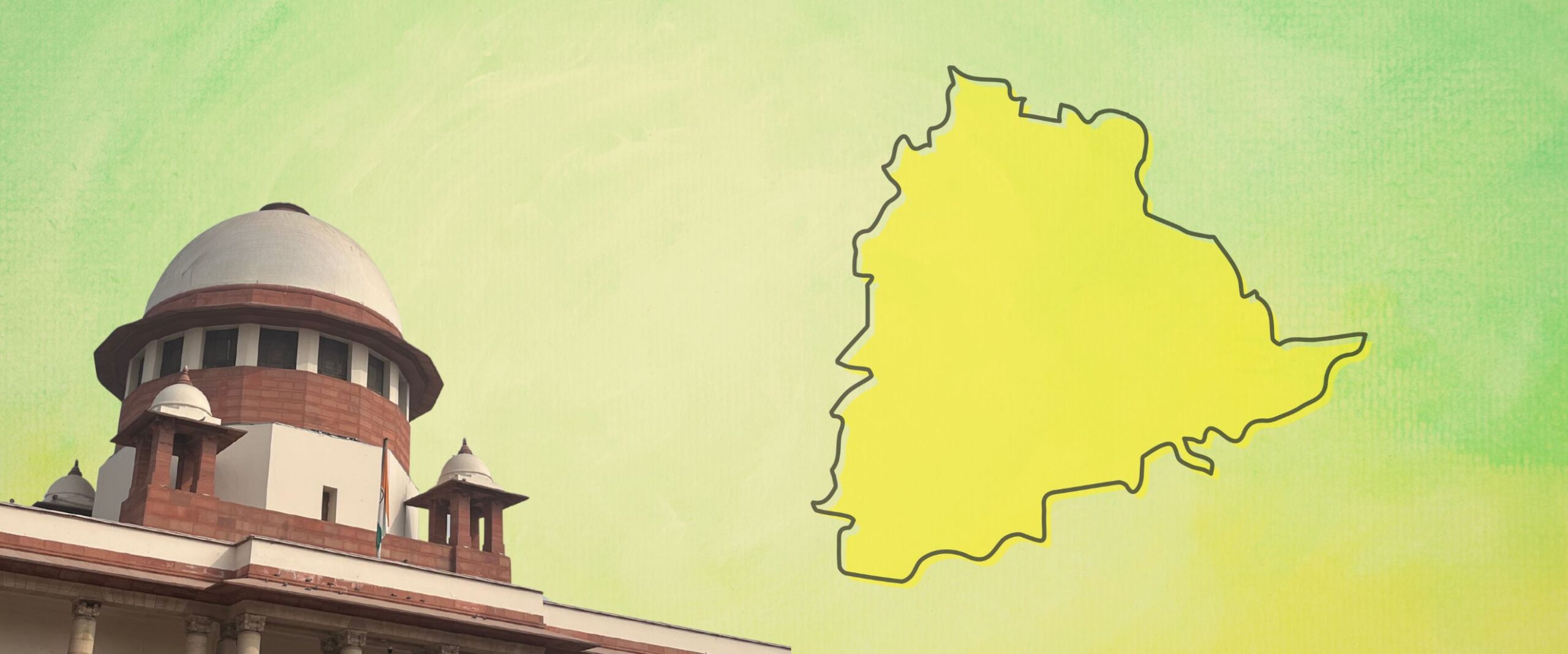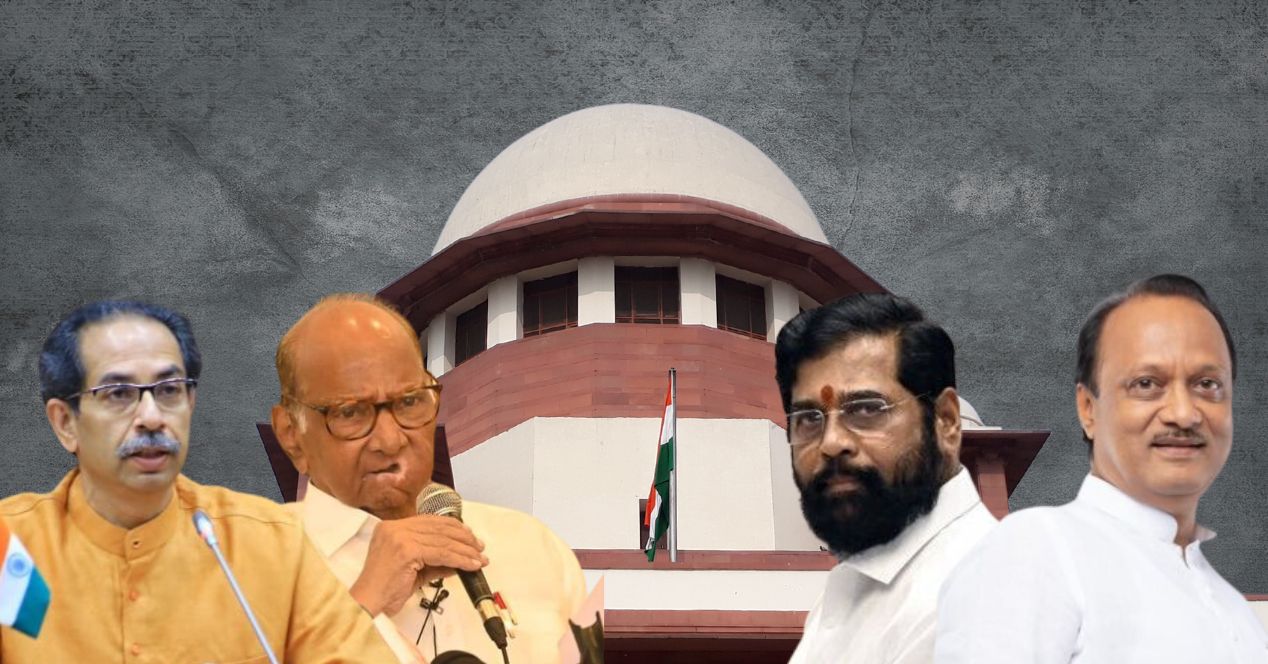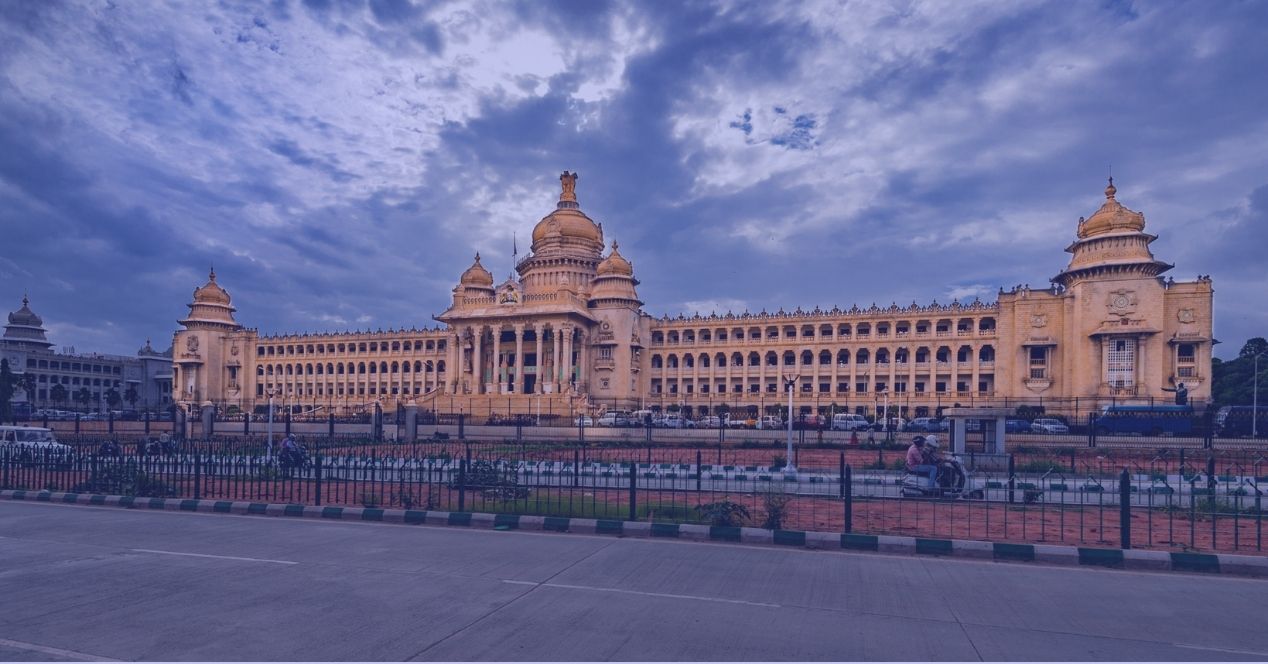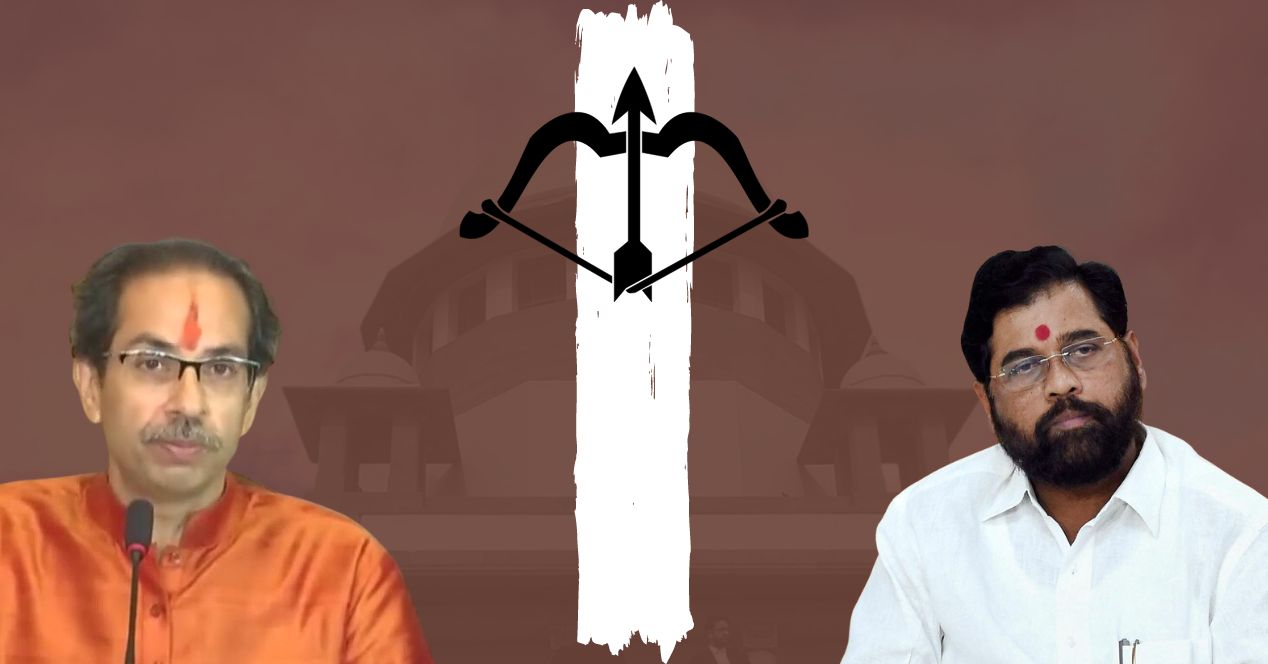Analysis
Supreme Court: Speaker does not enjoy constitutional immunity
The Court directed the Speaker of the Telangana Assembly to conclude disqualification proceedings against 10 MLAs within 3 months from today

Today, the Supreme Court held that the Speaker, acting as an adjudicating authority under Paragraph 6 of the Tenth Schedule, does not enjoy constitutional immunity under Articles 122 or 212. The Tenth Schedule deals with disqualification on the ground of defection. Articles 122 and 212 bar courts from discussing proceedings in Parliament and state legislatures, respectively.
The judgement was delivered by a Division Bench of Chief Justice B.R.Gavai and A.G. Masih in Padi Kaushik Reddy v The State of Telangana. The Bench found the Speaker of the Telangana Assembly, Sri Gaddam Prasad Kumar, did not act expeditiously in deciding the disqualification petitions against 10 MLAs.
What happened?
The most recent state elections in Telangana were held on 30 November 2023. The results were declared on 3 December 2023. The 10 MLAs were first elected to the Assembly as candidates of Bharat Rashtra Samithi (BRS) and later defected to the ruling Congress Party in batches between March and April 2024.
In response, two BRS MLAs filed disqualification petitions under Paragraph 2(1) of the Tenth Schedule between 18 March and 8 April 2024. Paragraph 2(1) states that a member of the Assembly shall be disqualified if they have voluntarily given up the membership of their political party. However, this Paragraph is subject to Paragraph 4, which exempts defecting MLAs from disqualification if they are not less than two-thirds of the strength of their legislative party and opt to merge with another party or form a new party.
At that time, the strength of the BRS in the 119-member Telangana Assembly was 39. As the number of BRS MLAs defecting to the Congress Party was less than two-thirds of the BRS’s strength in the Assembly, they could not get the protection of Paragraph 4 from disqualification.
In such instances, the Speaker is empowered under Paragraph 6 to decide disqualification petitions as per the procedure laid down in the Assembly Rules. Since the Tenth Schedule was enacted in 1985, there have been multiple instances of the Speakers (mostly belonging to ruling parties) delaying their decisions on such petitions till the end of the tenures of the assemblies.
Before the High Court
In the present case, the appellants first moved the Telangana High Court by filing writ petitions between April and July 2024. They questioned the inaction on the part of the Speaker in deciding the petitions against three MLAs.
On 9 September 2024, a Single Judge of the High Court directed the Secretary of the Assembly to place the disqualification petitions before the Speaker to fix a schedule of hearing (filing of pleadings, documents, personal hearing, etc) within four weeks. The Single Judge held that if nothing was heard within four weeks, the matter would be reopened suo moto and appropriate orders would be passed.
The Secretary of the Assembly challenged the Single Judge’s decision before a Division Bench of the High Court. The Division Bench set it aside on 22 November 2024. The respondents before the Division Bench of the High Court, appealed the decision before the Supreme Court.
Meanwhile, writ petitions were directly filed in the Supreme Court on disqualification petitions pending against the remaining seven MLAs. Their prayer: to direct the Speaker to decide the disqualification petitions in a time-bound manner and preferably within an outer limit of four weeks.
The Supreme Court’s decision
Relying on the Constitution Bench decision in Kihoto Hollohan v Zachillhu (1992), the Bench, led by CJI Gavai, held that the Speaker under Paragraph 6(1) of the Tenth Schedule is a Tribunal. Therefore, he was bound to decide the disqualification petitions within a reasonable period.
The respondents had cited Kihoto Hollohan to argue that judicial review was not available at a stage before the Speaker/Chairman made their decision. Further, a Quia Timet action (time-bound) would not be permissible. The petitioners, however, contended that judicial restriction against time-bound actions does not interdict the judicial review in aid of the Speaker/Chairman to arrive at a prompt decision of the disqualification petition. The Bench agreed with the petitioners’ contention.
The Gavai-Masih Bench also relied on another Constitution Bench decision in Rajendra Singh Rana v Swami Prasad Maurya (2007) and held that if the Speaker left the question of disqualification undecided, it could not be covered by the shield of Paragraph 6 of the Tenth Schedule. In Rana, the Supreme Court had taken note of the fact that the term of the Uttar Pradesh Assembly was coming to an end and therefore, a time-bound decision was warranted to protect the constitutional scheme and values.
The Gavai-Masih Bench also relied on Keisham Meghachandra Singh v Hon’ble Speaker, Manipur Legislative Assembly (2020). In that case, a three-judge Bench had directed the Speaker of the Manipur Legislative Assembly to decide the disqualification petitions pending before him within three months.
The Bench noted that in the present case, the Speaker did not even issue notices in the petitions filed against defecting MLAs for more than seven months. Notices were issued only after the proceedings were filed before the Supreme Court. In such a case, the failure to issue directions, the Bench said, would amount to permitting the Speaker to repeat the “widely criticized situation of operation successful, patient died.” The Bench, while conceding that it has no advisory jurisdiction, expected Parliament to consider whether the mechanism of entrusting the Speaker/Chairman with the important task of deciding disqualification on the ground of defection is serving the purpose of combating political defections.
It directed the Speaker not to permit any of the 10 MLAs against whom disqualification proceedings are pending, protract them. In the event, any of the MLAs attempt to protract the proceedings, the Speaker would draw an adverse inference against such MLAs, the Bench said. They further directed that the proceedings be concluded within three months.




